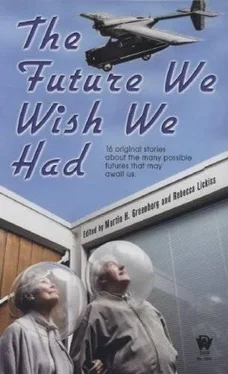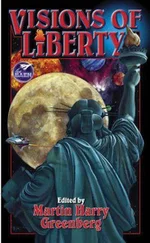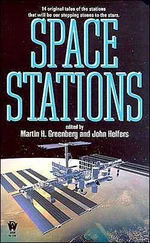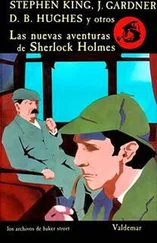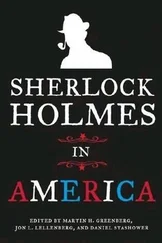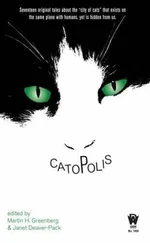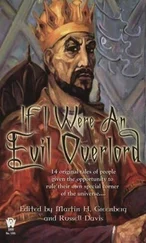Hijinks ensued.
***
Special thanks to Peter Liverakos for his invaluable help with winespeak. It’s not every man who knows which wines go best with potato chip sandwiches or squirrel, and can also phrase his knowledge so eloquently.
WAITING FOR JULIETTE by Sarah A. Hoyt
It was the first summer of the twenty-first century, and I was looking for a way to forget.
The sanctuary had looked good two hours ago, from the other end of Denver. It had looked like sweet respite wrapped up in what the doctor ordered. Here, up close and personal, from the corner of Colfax and oblivion, it didn’t seem like such a sure bet.
I should have gone straight to the sanctuary. I’d made an appointment. But the impenetrable brick facade with no windows and only one broad door, the word Sanctuary painted in a discreet shade of gray above it, had looked too much like the entrance to the tomb.
And I’d detoured to the diner across the street, where I sat, drinking cheap coffee, while the afternoon shadows elongated on the sidewalk, and the solar street lights flickered hesitantly on.
The problem was a girl. Her name was Juliette Jones. Mine was Romeo Smith. You could say it was destiny. I say it was proof that someone up there had a sense of humor. A nasty one.
“What will it be, honey?” the waitress asked, taking the order pad out of her apron pocket.
“Just… coffee,” I said.
“Come on,” she said. “You need something more. That coffee will eat your stomach lining if you don’t get some food to go with it. The souvlaki is good.”
I considered telling her I couldn’t eat because I was going into the sanctuary. But that wasn’t even true. They’d told me they didn’t care much what I did, provided I was neither drunk nor drugged. In full command of my faculties, in fact.
Of course, I hadn’t slept in two days. I rubbed my hand across my face to chase away the spiderwebs that seemed to veil my vision. But sleep deprivation didn’t count. “Yeah, the souvlaki will do,” I said, trying to shut her up as much as anything else.
And I tried to think through my predicament, with a brain that didn’t seem disposed to do anything much.
Don’t make jokes. We’ve heard them all. I suppose I’d have heard the jokes long before meeting Juliette, while working at the moon-launch-pad in Denver. Only I was born and raised on Luna. Mom was a romantic; Dad indulged her. And when they both died in the Tycho disaster, I was brought up in a Luna city orphanage-where no one knew enough about Shakespeare to make a single joke.
They called me Rom, guy, or hey you until it became clear my grades were good enough for a scholarship to Earth’s space center. And then they called me ours. Not that they wanted to keep me; rather, they wanted to flaunt me.
By the time I finished my space medicine degree, with honors, I was known as the Luna City Kid and people I’d never heard of were sending me gifts from Lunaward. I was their boy who made good.
And then I met Juliette. OK. No enmity of houses. But she was from old Earth money. And she’d trained to be an astronaut. Heck, her mom had her enhanced in womb to improve her chances of being an astronaut. She was the best of the best. And she was going to be the first woman on Mars. And then when she came back we were going to get married.
I swilled a bit more of the coffee and frowned at the street outside, at the sanctuary with its blank facade.
The waitress put a souvlaki platter in front of me, and I ate a couple of fries.
There were no passerby that I could see, only a lone car now and then. And yet people trickled into the diner, workmen from the nearby warehouses, students, cops.
They sat around the tables and talked. Fries whooshed into the deep fryer. Hamburgers hissed on the grill.
Perhaps I didn’t need to cold-sleep. I eyed the entrance to the sanctuary. Perhaps I could get over it in the normal way. Surely people would stop talking about it eventually. Surely…
The eight o’clock moon ship roared overhead, and the windows of the diner rattled. Someone turned on the TV.
And there, in grainy color, the capsule was flaming on reentry. It was supposed to flame. They’d told us it would happen. What they hadn’t told us about was the complete loss of communications-the capsule splashing into the sea, sinking, sinking. And nothing, nothing at all. Twenty-four hours of nothing. Before even the most optimistic had to admit everyone on board was dead.
Shocked, I looked at the replay of the scene that I saw behind my eyelids every time I closed my eyes. I was too far away to hear the words, but I didn’t need to. All around me, the working-class people who frequented the diner were talking, buzzing with sympathy, with horror.
“All dead.”
“Tragic.”
“Great loss.”
The tube changed, flickered. A picture of Juliette flashed up-red hair neatly caught into a braid at her back, her dark brown eyes-smiling. I stared at it, feeling my eyes swim with tears.
“First woman on Mars,” a woman at the next table said, and sighed.
“They say they’re going to name the next expedition after her,” a man said further on.
“Very pretty,” another man said.
“I hear she was engaged to be married,” said his girl.
And I realized my nails had bit into my hands so hard they’d left half-circles of blood. I needed to get over it. I needed to go on.
Juliette and I had been together for years. I couldn’t look at anything anywhere around and not see her. We’d walked every street in Denver. The moon launchpad base was our normal workplace. All our friends knew about the engagement. I’d already received more than my share of condolences. And they would go on.
“Here’s your bill,” the waitress said. And then, as I looked down at the slip of paper she’d dropped on the greasy table, “Oh my.”
I looked up. She was staring at the TV, at the image that filled the screen. The picture of Juliette and me that had been used to announce our engagement in the paper.
“You’re him,” she said. “No wonder you look so tired. I’m sorry, honey.”
It would go on like this. Our story had captured enough imaginations. “Orphanage kid to marry Earth heiress” was a surefire eye grabber. And now, in the biopics, the stories played out over the next half century. Everyone would see those pictures, hear that story.
Total strangers would give me their condolences and speak in hushed tones around me. I would never be free to live my own life as anything but the fiancé of a dead space exploration hero. Even any other girlfriends I might have would know. I would never be able to forget.
“It’s okay,” I told the waitress, my mind finally made up, and I dropped the money on the table. “I’ll feel better after a sleep.”
She nodded sympathetically and I walked across the street and into the sanctuary.
Whatever I’d been expecting, it wasn’t this. Not cheerful pink walls, decorated with the sort of inspirational posters that turn most office buildings into veritable madhouses of positive thinking.
There were children flying kites and women running atop gently sloped hills against improbably sunny skies. Sitting on the sofa upholstered in a white fabric, I read all the posters. Sleep away your cares. Gone today; back tomorrow. The future is better.
“Mr. Smith?” a pale blond woman with sweet features called. I got up.
She shook my hand. “I’m Elizabeth Ryes, your counselor,” she said, and in the adjoining office-painted in pale blue and furnished with two chairs upholstered in robin’s-egg blue-she proceeded to question me. “You will pardon me,” she said. “But you seem too young and healthy to be doing this.”
Читать дальше
